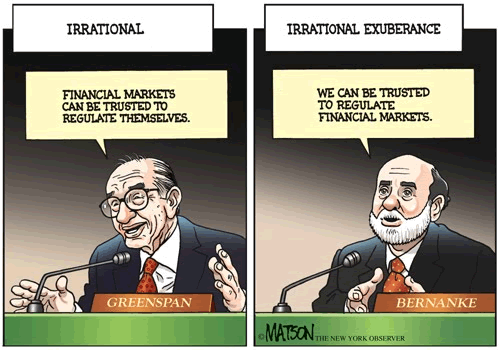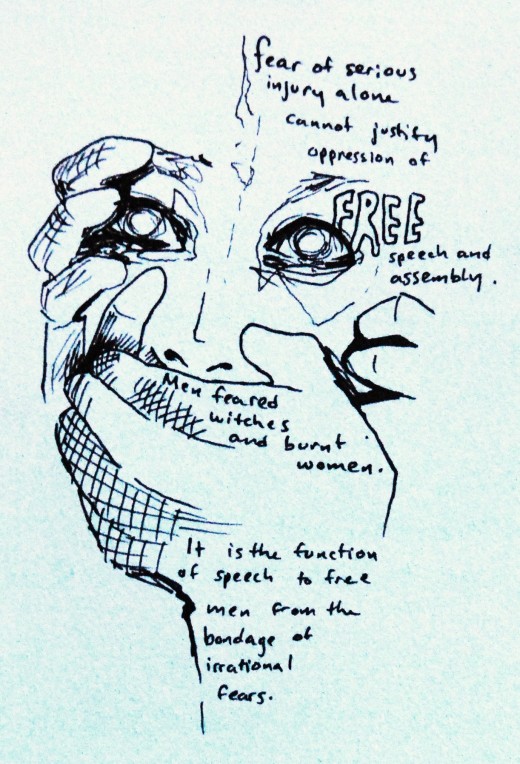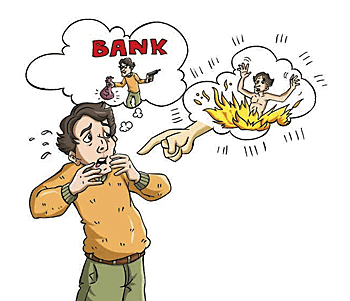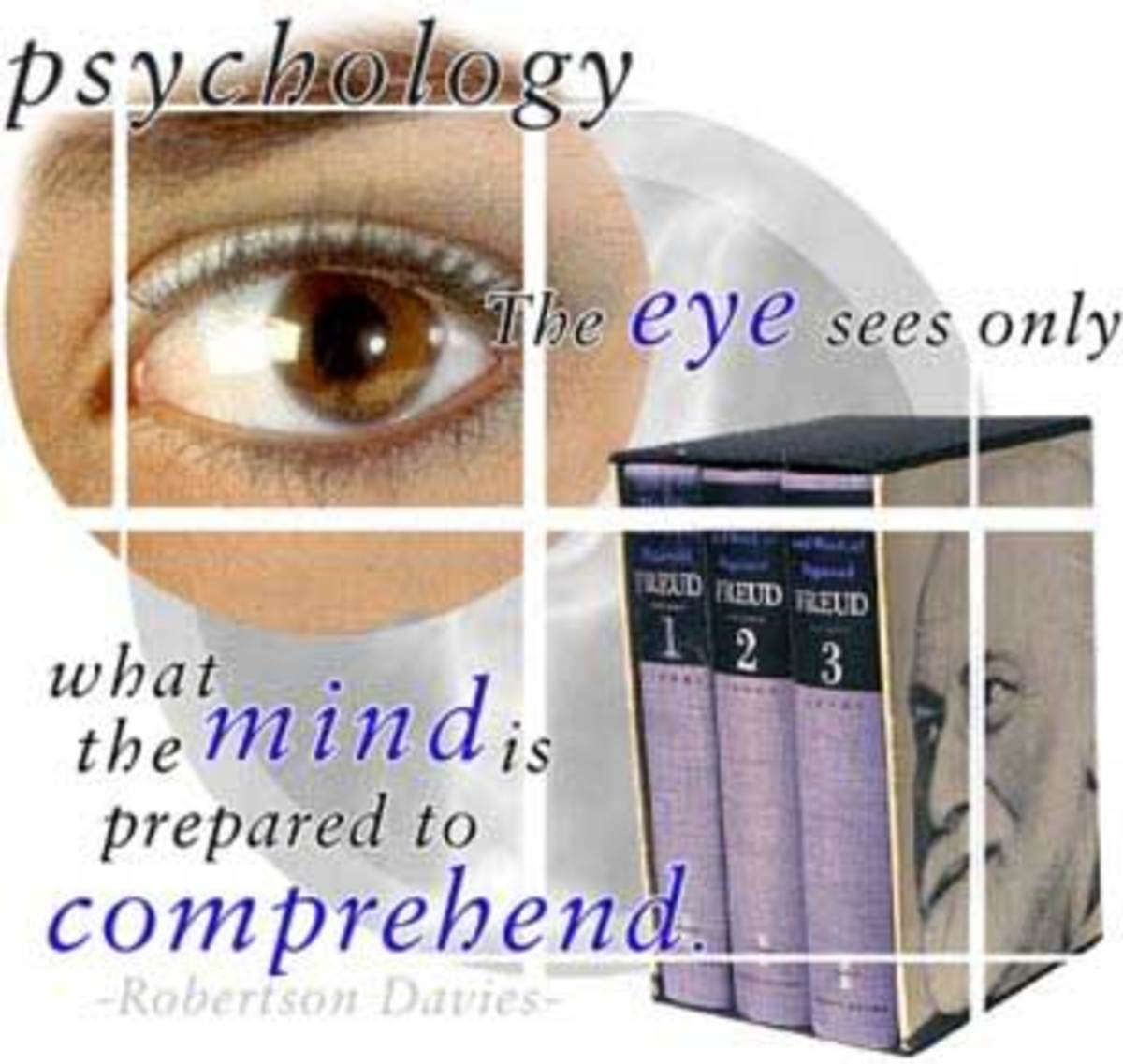The Irrational Shaping History
The irrational surfaces everywhere in our lives.




The irrational has a strong influence upon history
Though many will deny it, the irrational, subjective and unconscious play a major role within history and in the shaping of civilization. It is suggested by some, that these factors are not decisive, thus irrelevant in the shaping of individuals and of human society. But this is far from true. Despite attempts to run life and society by reason and logic, the irrational often substitutes these with rationalization instead. We first need to come to grips and know just what these are in the broad context of human psychology. Without this understanding, we become unwitting victims of these primal forces. The various and historical ruling powers and elite have been aware of this for a long time and has effectively used this in history to control the masses to their ends. They know that by training an individual from a very young age, they can get that person to do anything, even if the reward is a fantasy. We will examine in turn, the role and evolution of the irrational in living nature, what religion and psychology has revealed and how this impacts on history and the unfolding of our "progress" in history.
Life as we know it evolved over a period of 3 ½ billion years within the context of changing circumstances and the forces of nature. Complex life started about 470 million years ago. Life has changed drastically as a result of those same forces and as a result of changing the environment. During the course of evolution, a lot of changes occurred to enhance survival. Often evolution speeds up during catastrophes. But in that same period, all the “old lessons” were not forgotten. They reside in our genetic makeup and in the primal instincts that are within the brain. The unconscious mind functioning within the matrix of the brain controls processes like breathing, heartbeat, balance, digestion, elimination, instantaneous fight or flight responses, sexual activity and unconscious pattern recognition. Most of these traits are passed on from generation to generation with only occasional minor changes. Primal instincts such as breathing, drinking, feeding, elimination, fear response, aggressiveness, sexual attraction and such, are inborn and require very little training. Instincts are things we do not have to learn, they are inborn. In fact, without additional training under civilizing influences, these primal instincts come to the fore. Under civilizing influences, such as religious training, these primal instincts are controlled or repressed and as a result lead to things like hysteria, neurosis and psychosis. Civilization is about control, after all, specifically the ruled by the rulers. The primal instincts are not eliminated, just controlled, often by exploiting the fear response and using aggressiveness and terror. Some instincts, such as sexual attractions are repressed and become unconscious, but still have an impact on ones life. Often when appealing to reason, the unconscious and the irrational take over and reason becomes rationalization for personal urges, desires and wishes.
There are many causes for experiences being driven into the unconscious. One is done by repression. Another is by some form of traumatic shock. Most often it results by learning something so well it becomes “second nature.” Education is another route by which the rational can be suppressed in favor of the irrational and unconscious emotional response. I refer now to the case of parochial schools and the destruction of First Nation culture by the stealing of the children (if the parents weren’t first murdered) and re-educating them to serve the colonial masters. Rational methods of living close to nature and the land are suppressed in favor of serving a new master in a humbled religious attitude. After this education, returning to the old ways is next to impossible, because that learning was replaced with something more desirable for the new masters. This re-education was in large a fantasy and was designed to instill terror, so that the “graduate” of this system was helpless in the real sense and reliant on their new master, regardless of that master’s xenophobia and ultimate unwillingness to give any support in difficult circumstances. The First Nations people were rewarded for their initial generosity toward their ultimate conquerors with genocide and a ruined and destroyed culture, a culture replaced with the fantastic notions of fraudulent Christians. In addition, the experienced were not around to give the re-educated children the knowledge of the old ways. In effect, the re-educated children remained as babes when it came to survival skills without the support of the new masters.
Most of us are in the exact same position in the working class today and are largely oblivious to the fact of how precarious our position is. Our Christian culture has sought fit by reasons of control, to repress our natural instincts, turning the functions of life into a sin. We become alienated from ourselves and wind up attempting to re-connect with that lost identity and not even knowing exactly how. We are given pat answers and suggestions that faith can cure issues like substance abuse, uncontrollable emotions and so-called sexual deviation. Those who give us this guidance are often guilty of the very things they condemn. The trouble is that as youths, such “undesirable traits” as defined by self appointed masters are driven into the unconscious to re-emerge when the conditions are right. Sometimes they re-emerge in unusual ways.
As living beings, we developed in direct response to nature and still function in that context, even if alienated from that direct knowledge and experience by isolation from nature. The civilizing process has gone far in that isolation process and as a result has left almost everyone as vulnerable as new born babes. When the natural world has one of its moments of catastrophe, this fact is laid bare for all to see who can understand it. Such disasters occurred in Malaysian on Dec. 26, 2004 and in late Aug. 2005 in New Orleans. Suddenly, many reliant upon civilization for their ability to live were cut off from their means of living. Few had the necessary knowledge to function in the aftermath of catastrophe. Their deficiency was laid bare even to themselves and a host of responses emerged in a bid to live under the new laws without civilization. Some responses worked and some did not. Many people died needlessly due to neglect on part of those capable of doing something, and from the lack of knowing any other way of life beyond the civilized one. In dealing with a personal crisis emerging from a catastrophic crisis, unconscious instincts came to the fore. Things long repressed, even forgotten in the conscious mind suddenly emerged as the “new reality” in great potency. The “new reality” was the old reality long suppressed by civilization and things like religion. It is something to be aware and concerned about because humanity often brings on its own catastrophes with similar results to natural ones. Two such human catastrophes are war and economic collapse.
Just what is this unconscious? Sigmund Freud in his extensive researches, proved the existence of the unconscious in treating hysteria, neurosis and through dream analysis. The unconscious contains all the memories of the living individual, the instincts carried forward for billions of years and these affect our every living moment from dreams to how we respond to any and all stimuli and how we communicate. Carl Jung, initially a student of Freud, took the research deeper, adding to it the insights of the ages gleaned through astrology and the like. He was also deeply involved with dream analysis. Dreams are often our direct link between the conscious mind and the unconscious mind. The unconscious response can also be triggered by pattern recognition similar to what occurs in the Rorschach ink blot test. The ink blot test evolved from recognizing that natural patterns often triggered an unconscious to conscious response. Sometimes this transition from the unconscious to the conscious induces a shock, startling the individual causing fright and the resulting fight or flight response. Sometimes we see patterns in nature in the half light of dawn or twilight or in the dark that we think is something else than what it really is, and this can cause a fear response with drastic results. When we are already on edge, that process can cause us to respond in sudden fight and react by “jumping out of our skins.” In theaters of war, the edginess induced by the constant tension of becoming suddenly, without warning in a life threatening situation at any time, can create “shell shock” so that in civilian life after the war, a back firing car can suddenly be relived as incoming fire with all the responses attached to living under war, such as “hitting the dirt” or lashing our in uncontrolled anger.
Examples of the superposition of the familiar to the viewed environment are familiar to most people, seeing animals, objects and people in constellations, rock formations or in clouds and bushes at dusk or twilight. These patterns have gone on to inspire such works as the Egyptian pyramid complex. They have inspired the sacred writings because all of nature has its patterns. Most of what we experience is a wild display of natural fractal expression from the view of planets, coastlines, clouds, plants, animals, people, detailed anatomy, economy and so on ad infinitum. In civilization we try to smooth out the fractal edges to hard edged Euclidean geometry in out buildings, bridges, roads, vehicles and machines. Yet modern machinery is developing fractal dimensions of which the computer circuits in their self similarity, is a prime example. We even attempt to get machines to imitate human ability, appearance and function in robots. This is how superposition of our ideas is implanted into the external world.
Now you may wonder how this applies to economics and politics. The answer is just this. As most people are dumbed down and also highly specialized with a narrow field of focus, then this leaves a lot of territory for the unconscious and irrational side of human nature. It has often been stated that the capitalist market varies between greed and fear, both unreasoning emotions. The greed for money and wealth causes prices to soar in the market even though reason states that less of a product means higher prices and more of a product means lower prices. Conversely, fear causes people to sell off what may in reality be a good stock or product. This creates an instant glut and prices tumble. Somewhere in all of this are those who know how to manipulate this cycle of greed and fear to their own profit to everyone else loss. That is because most people are unaware of the machinations of the few who know what they are doing. They are kept ignorant, so when they play in the capitalist money making field after being encouraged to do so, inspired by greed, they inevitably lose their savings and pensions. Most people respond on a gut level, which is counter productive in manipulated circumstances. These are the people who buy into over valued stocks and commodities and then lose when the over valued bubble bursts.
Political elections are so common that people are blasé about them. Yet most political battles on the election front are not won on the soundness of a certain candidate’s position, but on scandal and emotional appeal. When a candidate actually offers a rational, well thought out platform, it is ignored by most people, who from their lack of understanding, rely on gut instinct of attraction versus repulsion. Fear and greed also play a part because capitalist politics is inextricably tied in with economics, which relies on greed and fear to stimulate mass response. The media and political opponents rely on this in order to make gains, using personality traits, gaffes and scandal to enhance or destroy candidates. This is often what is left as many programs and promises are identical between opposing parties. Election wins are more often won on the irrational factor of personality appeal as opposed to program.
When a person is in the throws of an intense emotion, such as fear, the reasoning capacity is diminished. The same is true of anger and even love. Everyone has experienced how reason is diminished under stress of some kind; such as fear of failure or fear under a tense situation like an emergency or life threatening circumstance. Sometimes this reaction lasts well after the danger or threat has passed. Under such conditions, one can do even stupid things that would not occur if the mind was calm, clear and reasoning. Even under rigorous training and repetitive drilling, the whole protocol learned under such circumstance can break down completely as a person reacts irrationally. This is most noticeable under the threat to life and limb in warfare. Threatening and pressure situations can throw a person into a more primitive mode that draws upon the resources contained in the unconscious. This is why many people get flustered in crisis situations. This is why the irrational has a strong influence upon history.








